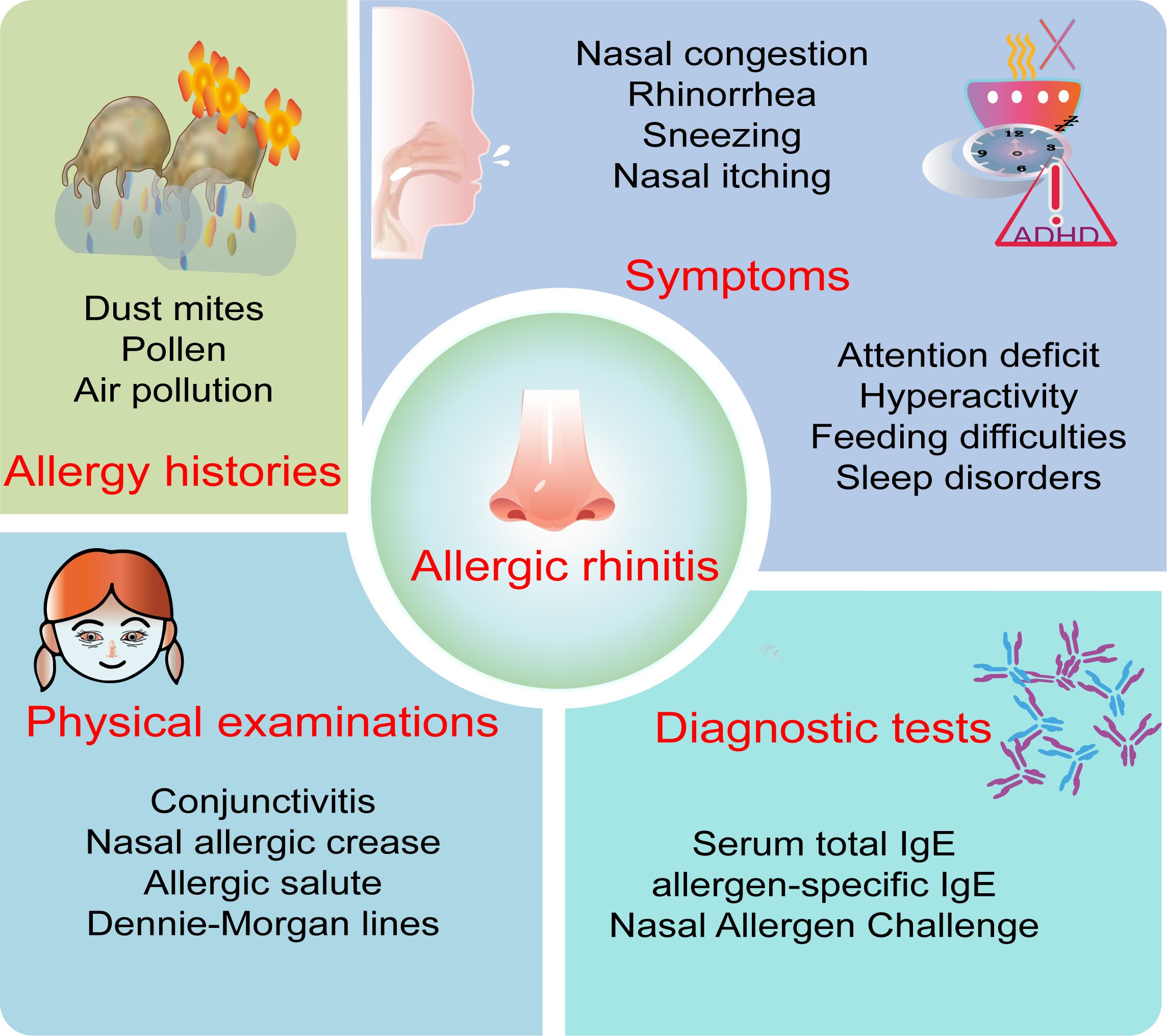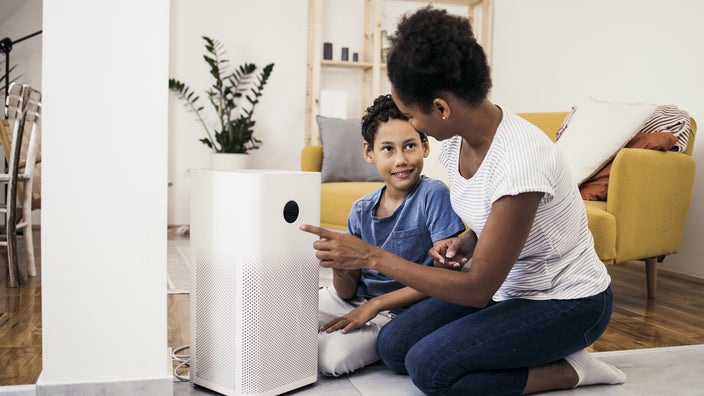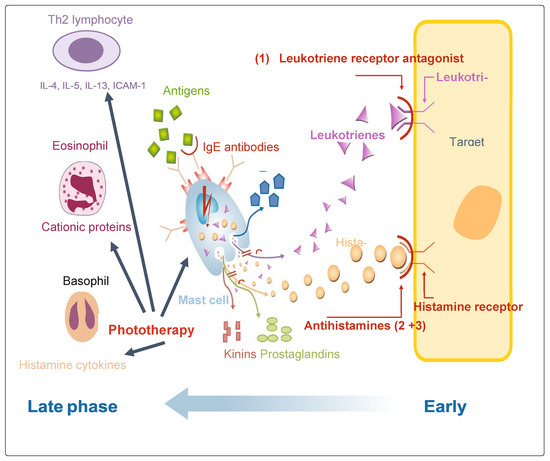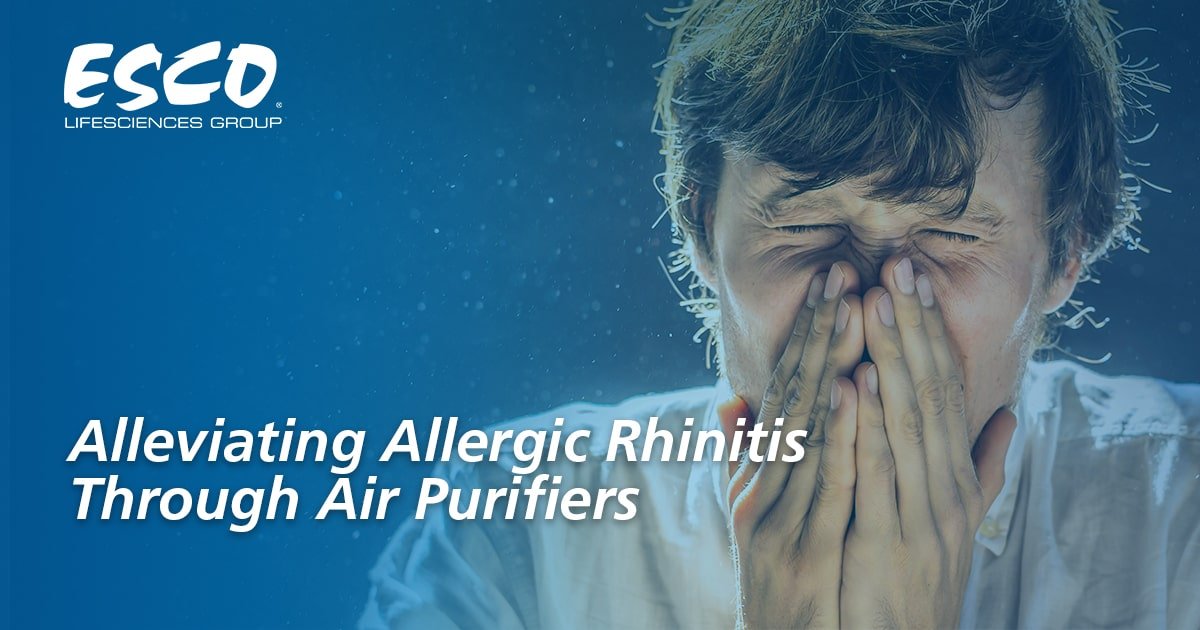Yes, air purifiers can help manage allergic rhinitis. They remove allergens from the air.
This can reduce symptoms. Allergic rhinitis, also known as hay fever, affects millions worldwide. Sneezing, runny nose, and itchy eyes are common symptoms. These can disrupt daily life and sleep. Many look for ways to ease these symptoms. One effective solution is using an air purifier.
Air purifiers clean the air, removing pollen, dust mites, and pet dander. This can significantly reduce the allergens in your home. As a result, you may experience fewer symptoms. In this blog, we will explore how air purifiers can help manage allergic rhinitis. We will also discuss the benefits and features to consider when choosing one.
Introduction To Allergic Rhinitis
Allergic rhinitis is a common condition. It affects millions of people worldwide. It occurs when allergens trigger the immune system. This leads to symptoms like sneezing and nasal congestion. Understanding allergic rhinitis helps manage its symptoms better.
Common Symptoms
The symptoms of allergic rhinitis can vary. Here are some of the most common:
- Frequent sneezing
- Runny or stuffy nose
- Itchy eyes, nose, or throat
- Watery eyes
- Postnasal drip
- Fatigue
These symptoms can be mild or severe. They may disrupt daily activities and sleep. Identifying these symptoms early helps in managing the condition.
Causes And Triggers
Allergic rhinitis is caused by allergens. Common allergens include:
- Pollen from trees, grass, and weeds
- Dust mites
- Pet dander
- Mold spores
- Cockroach waste
These allergens can be found indoors and outdoors. Exposure to these triggers leads to allergic reactions. Understanding these triggers helps in taking preventive measures.
Air purifiers play a crucial role in managing allergic rhinitis. They help reduce allergens in the air, making it easier to breathe. Choosing the right air purifier can significantly improve the quality of life for allergy sufferers.
Air Purifiers: An Effective Solution
Managing allergic rhinitis can be challenging. Allergens like dust, pollen, and pet dander trigger symptoms. Air purifiers offer an effective solution. They help reduce indoor allergens. This can provide relief and improve indoor air quality.
How They Work
Air purifiers filter out allergens. They use different technologies to clean the air. Common methods include HEPA filters and activated carbon. Some models also use UV light. These systems trap or destroy allergens, making the air cleaner.
| Technology | Function |
|---|---|
| HEPA Filter | Traps particles as small as 0.3 microns |
| Activated Carbon | Removes odors and chemicals |
| UV Light | Destroys bacteria and viruses |
Types Of Air Purifiers
There are different types of air purifiers. Each type uses unique methods to purify the air. Choosing the right type depends on your needs.
- HEPA Air Purifiers: Best for trapping small particles like dust and pollen.
- Activated Carbon Purifiers: Effective at removing odors and gases.
- UV Air Purifiers: Good for killing bacteria and viruses.
- Ionic Purifiers: Use electrically charged ions to remove particles.
Understanding these types helps in selecting the best air purifier. This ensures better management of allergic rhinitis.
Key Features To Look For
Finding the right air purifier can help manage allergic rhinitis. You need to know the key features to look for. This guide will cover the essentials. The right features ensure you get the best results. Let’s explore these key features.
Hepa Filters
HEPA filters are essential in an air purifier. They capture 99.97% of tiny particles. This includes dust, pollen, and pet dander. These particles are common allergy triggers. Having a HEPA filter can reduce these allergens. This can ease symptoms of allergic rhinitis. It is important to check for true HEPA filters. They are different from HEPA-type filters. True HEPA filters are more effective.
Activated Carbon Filters
Activated carbon filters are another key feature. They remove odors and gases. These filters absorb chemicals in the air. This includes smoke and volatile organic compounds (VOCs). Clean air reduces allergic rhinitis symptoms. Some purifiers have both HEPA and activated carbon filters. This combination offers better air quality. Make sure to look for this feature.
Placement And Usage Tips
Proper placement and usage of air purifiers can significantly help in managing allergic rhinitis. These tips will ensure you get the most out of your air purifier, providing relief from allergens and improving air quality.
Ideal Locations
- Bedrooms: Place air purifiers in bedrooms for quality sleep. Allergens in the air can disrupt sleep.
- Living Room: Keep an air purifier in the living room. This is where families spend most of their time.
- Kitchen: Kitchens can have pollutants from cooking. An air purifier can help reduce these.
- Near Entry Points: Placing air purifiers near doors and windows can trap incoming allergens.
Maintenance Tips
- Regular Filter Replacement: Check and replace filters regularly. This keeps the purifier working efficiently.
- Clean the Unit: Dust and clean the exterior of the air purifier weekly.
- Check Air Quality Indicators: Many purifiers have indicators. Monitor these to ensure optimal performance.
- Follow Manufacturer Instructions: Always adhere to the guidelines provided by the manufacturer.
Health Benefits Of Air Purifiers
Air purifiers can make a big difference in your health, especially if you suffer from allergic rhinitis. They help to remove harmful particles from the air, making it cleaner and safer to breathe. Let’s explore how air purifiers can improve your life.
Improved Air Quality
Air purifiers can significantly improve indoor air quality. They filter out dust, pollen, pet dander, and other pollutants. This means you breathe in cleaner air. Cleaner air can lead to better overall health.
Here are some pollutants that air purifiers can remove:
- Dust
- Pollen
- Pet dander
- Smoke
- Mold spores
Reduced Allergy Symptoms
Many people suffer from allergies. Allergic rhinitis is a common condition. Air purifiers can help reduce symptoms such as sneezing, coughing, and itchy eyes. They do this by removing allergens from the air.
Consider these benefits of reduced allergy symptoms:
| Symptom | Benefit |
|---|---|
| Sneezing | Less irritation |
| Coughing | Better sleep |
| Itchy eyes | More comfort |
Comparing Air Purifiers For Allergies
Comparing air purifiers for allergies can be tricky. With so many models available, it’s hard to know which one is right for you. This section will help you understand the options. We will look at top models and their cost vs. benefit analysis.
Top Models
Some air purifiers stand out for allergy relief. The Dyson Pure Cool Link is a popular choice. It has a HEPA filter that captures allergens. Another good option is the Honeywell HPA300. It covers large rooms and is easy to use. The Levoit Core 300 is budget-friendly but effective. It has three-stage filtration. The Blueair Blue Pure 211+ is also worth considering. It has a sleek design and strong performance.
Cost Vs. Benefit Analysis
Choosing the right air purifier depends on budget and needs. More expensive models offer advanced features. They may have smart controls or additional filters. The Dyson Pure Cool Link costs more but offers cooling benefits. The Honeywell HPA300 is mid-range but covers large areas. The Levoit Core 300 is affordable. It is good for smaller spaces. The Blueair Blue Pure 211+ is a bit pricier but stylish and powerful.
Consider ongoing costs too. Some filters need replacing often. This adds to the overall expense. Weigh the benefits against the cost. A higher initial price may save money in the long run. An effective air purifier can reduce allergy symptoms. This can lead to better health and comfort.
User Experiences And Testimonials
Many people suffering from allergic rhinitis have turned to air purifiers for relief. User experiences and testimonials provide real-world insights into the effectiveness of these devices. They share both positive outcomes and common complaints. This helps potential buyers make informed decisions.
Success Stories
Several users have shared their success stories. They report significant improvements in their quality of life. One user mentioned that their night-time congestion reduced noticeably. This led to better sleep and more energy during the day.
Another user highlighted their child’s improvement. The child used to suffer from frequent sneezing and itchy eyes. After using an air purifier, these symptoms were greatly reduced. This brought much-needed relief to the entire family.
Common Complaints
Despite the positive feedback, some users have shared common complaints. One frequent issue is noise. Some air purifiers are louder than expected, especially at higher settings. This can be a problem in bedrooms or quiet spaces.
Another common complaint is the cost of replacement filters. Some users find them expensive and not readily available. This can add to the ongoing maintenance cost of the device.
Understanding these experiences can help you choose the best air purifier. It ensures you get the right balance of benefits and drawbacks.

Credit: www.frontiersin.org
Additional Allergy Management Tips
Managing allergic rhinitis can be challenging, but combining the use of air purifiers with other strategies can help. Here are some additional tips to manage allergies effectively.
Lifestyle Changes
Implementing certain lifestyle changes can significantly reduce allergy symptoms. Consider these tips:
- Keep windows closed during high pollen seasons.
- Shower and change clothes after being outdoors.
- Use dust mite-proof bedding covers.
- Maintain a clean home environment.
Regular cleaning can prevent dust and allergens from accumulating. Vacuum carpets and upholstery weekly using a HEPA filter vacuum cleaner. Wash bedding in hot water weekly to kill dust mites.
Medical Treatments
In addition to lifestyle changes, various medical treatments can help manage allergic rhinitis. Here are some common options:
| Type | Description |
|---|---|
| Antihistamines | Reduce sneezing, itching, and runny nose. |
| Nasal corticosteroids | Reduce inflammation and congestion. |
| Decongestants | Relieve nasal congestion. |
| Allergy shots | Gradually reduce sensitivity to allergens. |
Consult with your doctor to determine the most effective treatment plan. They can provide guidance on medication usage and possible side effects.
Conclusion And Recommendations
In this section, we delve into the conclusion and recommendations for using air purifiers to manage allergic rhinitis. Proper air quality is crucial for those with this condition. Using an air purifier can make a significant difference.
Final Thoughts
Air purifiers can improve indoor air quality. They remove allergens like pollen, dust, and pet dander. Cleaner air can reduce symptoms of allergic rhinitis. It’s a straightforward way to breathe easier.
Expert Advice
Experts suggest using HEPA filters. They are effective at trapping small particles. Place the air purifier in rooms where you spend the most time. Keep windows and doors closed to prevent outside allergens from entering.
Regular maintenance of the air purifier is key. Change filters as recommended. A clean air purifier works better and lasts longer.
Consult with a healthcare professional. They can offer personalized advice. An air purifier is not a cure but it helps manage symptoms.

Credit: www.goodrx.com

Credit: www.mdpi.com
Frequently Asked Questions
What Is Allergic Rhinitis?
Allergic rhinitis, also known as hay fever, is an allergic reaction. It occurs when your immune system overreacts to allergens.
How Do Air Purifiers Help With Allergic Rhinitis?
Air purifiers help by removing allergens like pollen, dust, and pet dander from the air. This reduces exposure to triggers.
Which Air Purifier Is Best For Allergies?
HEPA air purifiers are best for allergies. They capture 99. 97% of airborne particles, including allergens, making the air cleaner.
Can Air Purifiers Reduce Allergy Symptoms?
Yes, air purifiers can reduce allergy symptoms. They remove allergens from the air, thus minimizing the triggers that cause symptoms.
Conclusion
Air purifiers play a vital role in managing allergic rhinitis. They remove allergens from the air. Clean air means fewer sneezes and less discomfort. Investing in an air purifier can improve quality of life. It provides a cleaner, healthier environment.
Breathing easy becomes possible with an effective air purifier. Overall, they are a helpful tool in allergy control. Give your nose a break with cleaner air.
Rakib Sarwar is a Registered Pharmacist and a reputed health and wellness blogger. He has a great interest in Air purifiers.
